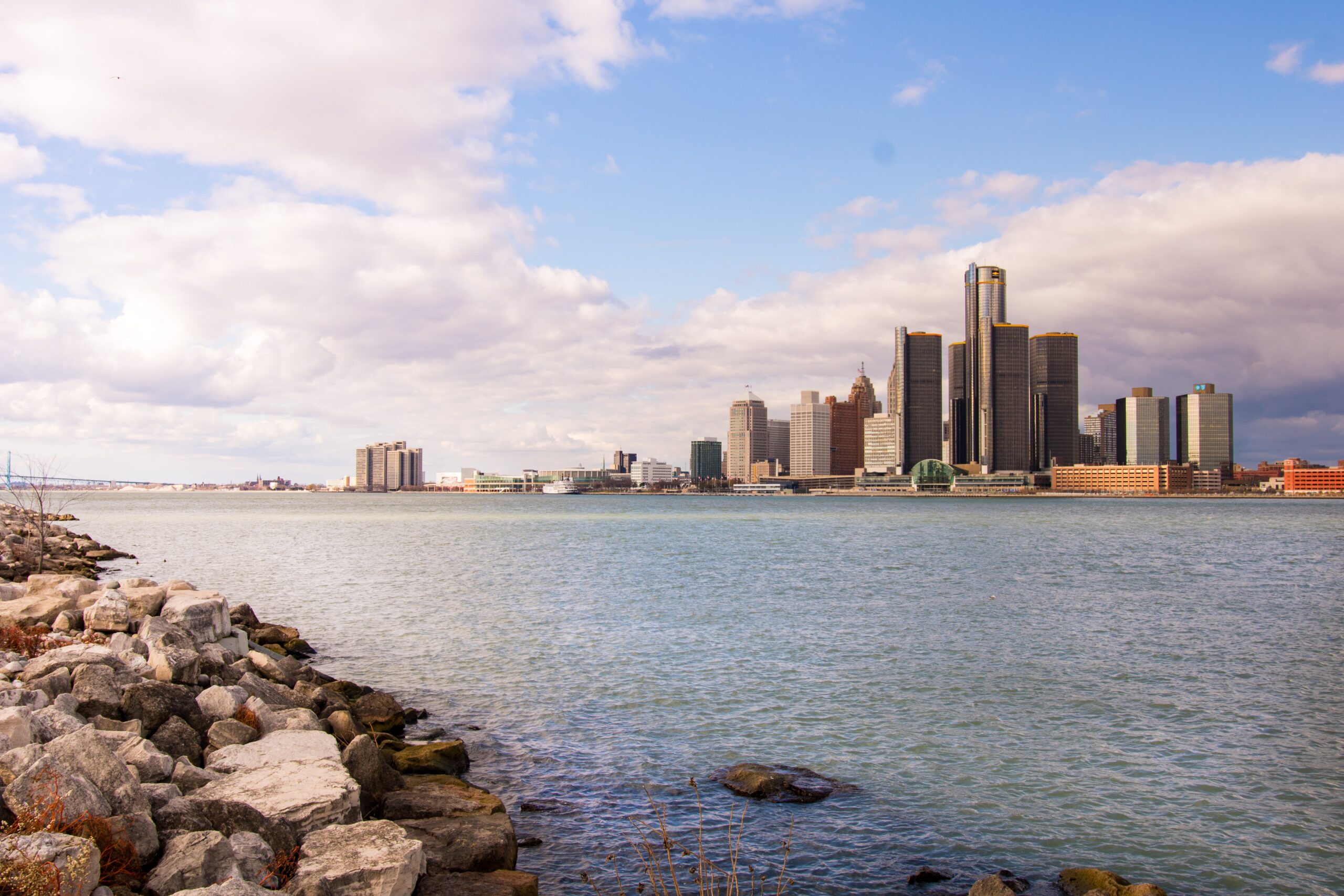On the Ground in Three Michigan Counties for Crucial Governor’s Race
This fall, 36 states will hold gubernatorial elections, but few will be as interesting as the one in Michigan.
Michigan was one of the crucial “flip” states in the presidential elections of 2016 (to Republican Donald Trump) and 2020 (to Democrat Joe Biden). And incumbent Gov. Gretchen Whitmer has gone from being a rising star in Democratic politics to being the target of a right-wing kidnapping plot. As 2024 approaches, analysts are looking at the governor’s race to gain clues of where the crucial swing state is politically. The state is facing some of the same issues being felt in the nation as a whole: economic challenges in the wake of the Covid pandemic, the impact of the Supreme Court overturning of Roe v. Wade, and the broader changes to politics ushered in by Donald Trump.
For all those reasons, the American Communities Project is watching the race closely and, with our academic partner, Michigan State University, is in the middle of an effort to study important voter communities through the end of 2022.
The ACP has spent the first half of 2022 identifying and visiting voters in three key counties:
- Wayne County, the Big City home of Detroit;
- Kent County, the Urban Suburb that surrounds Grand Rapids; and
- Missaukee County, a rural northern Working Class Country community.

This fall, the ACP will write dispatches from these counties (and others) with the help of students in the School of Journalism’s Advanced Reporting class. The focus will be on how these communities see the issues, the candidates, and the race’s larger stakes.
County Profiles
Each county lives in very different circumstances and is looking at the campaign through very different sets of eyes.
In the southeastern corner, Wayne County, the state’s Big City community, is home to some 1.7 million people, making it the most populous county in the state by far. It has long been the state’s political power base and the home to massive advantage for the Democratic Party. Wayne gave Joe Biden 68% of its vote in 2020.
It’s racially and ethnically diverse as well as socioeconomically complicated. Wayne is only about only 49% white, non-Hispanic and just 24% of adults have a bachelor’s degree — though parts of the county have much higher educational attainment figures. Whitmer will win Wayne and will do so by a large margin. The question will be how many voters show up at the polls. In Michigan’s close races, Democratic statewide candidates often live and die by Wayne’s turnout.
About 150 miles west of Wayne, Kent County is an Urban Suburb that has been going through some political changes. Long considered a Republican power base in Michigan, the county has started to lean more liberal — especially with the political rise of Donald Trump. Trump won once solidly Republican Kent by just three points in 2016 before Democrat Joe Biden won it by about five points in 2020.
Kent (pop. 650,000) is more suburban in its makeup than Wayne. It’s become more diverse in recent years, but is still 73% white, non-Hispanic with a growing Hispanic population. It also has higher levels of educational attainment, 36% have bachelor’s degrees. In the red/blue binary understanding of American politics, Kent is purple. Whichever candidate wins this county in November has a very good chance of winning the governor’s mansion.
Much farther north, where the Michigan landscape turns to forests and small lakes, sits Missaukee County, a Working Class Country county in the ACP. Much less populated than Wayne or Kent, it’s home to just 15,000 people. In that way, Missaukee is a good stand-in for many of the state’s northern inland counties. Away from the Great Lakes shorefront and the tourism dollars it provides, the county has a small-town feel and is heavily Republican. Trump won 76% of the vote here.
Missaukee is the least racially and ethnically diverse and oldest county of the three the ACP will be watching this fall. Its population is 94% white, non-Hispanic and more than 21% of residents are over 65. Bachelor’s degrees are more uncommon here — only 14% of the 25-or-older population have one. Missaukee is the inverse of Wayne. The Republican gubernatorial candidate will win here; the question will be turnout.
Dante Chinni and MSU Journalism Professor Judy Walgren have been visiting and emailing with residents in these communities for months. Michigan State students will be following suit this fall.
The key goals of this project: To understand who will win and lose the race and why — and, just as important, to get a sense of where a critical state stands politically as the nation goes through turbulent times and the 2024 presidential race looms.
